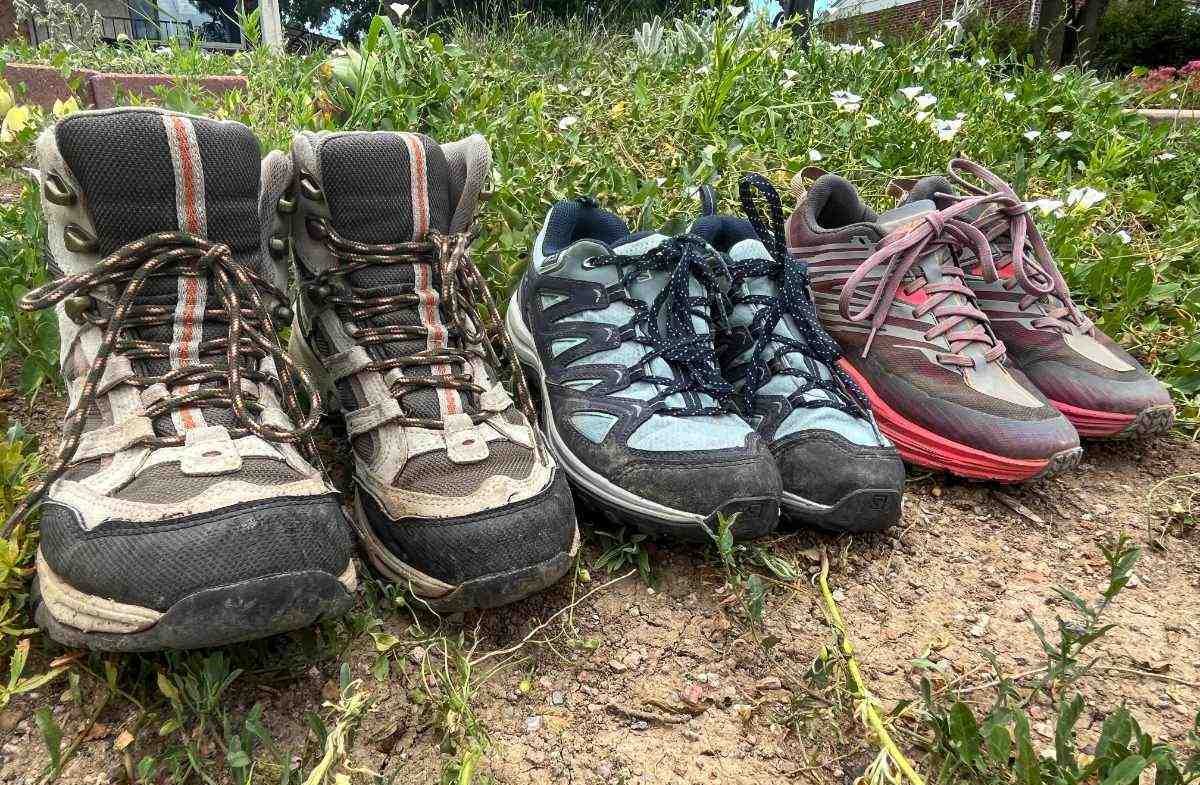When it comes to outdoor activities, having the right footwear is essential for comfort and safety. Hiking shoes and sneakers are two popular choices for outdoor adventures, but they serve different purposes and have distinct features that make them suitable for specific activities.

Credit: www.chaar.us
Hiking Shoes
Hiking shoes are designed for rugged terrain and long hikes. They provide excellent support and stability, making them ideal for hiking on uneven surfaces like mountains, trails, and rocky terrains. Hiking shoes typically have a firm sole with deep treads for better traction, protecting your feet from sharp rocks and roots.
These shoes are also designed with features like waterproof materials to keep your feet dry in wet conditions, as well as toe guards to protect your toes from impact. Hiking shoes often have ankle support to prevent injuries on challenging trails and offer a secure fit to keep your feet stable during long hikes.
Sneakers
Sneakers, on the other hand, are more versatile and suitable for casual walks, light hikes, and everyday wear. They are lightweight and flexible, providing comfort for activities that do not require intense support or protection. Sneakers have a softer sole compared to hiking shoes, making them more comfortable for walking on flat surfaces like pavements and gym floors.
While sneakers may offer cushioning and breathability, they lack the rugged features of hiking shoes, such as durable materials and aggressive treads. Sneakers are designed for urban environments and leisure activities, offering style and comfort for everyday wear without the technical specifications needed for challenging outdoor terrains.

Credit: www.treelinereview.com
Key Differences
1. Support and Stability: Hiking shoes offer better support and stability for rugged terrains, while sneakers are more flexible and lightweight for casual wear.
2. Traction: Hiking shoes have deep treads for traction on uneven surfaces, while sneakers have a softer sole for walking on flat terrains.
3. Materials: Hiking shoes are made of durable, waterproof materials for protection, while sneakers focus more on style and comfort.
4. Purpose: Hiking shoes are designed for outdoor adventures like hiking and trekking, whereas sneakers are suitable for everyday wear and light activities.
5. Ankle Support: Hiking shoes often have ankle support to prevent injuries on challenging trails, a feature not commonly found in sneakers.
Frequently Asked Questions
Are Hiking Shoes Better Than Sneakers For Hiking?
Hiking shoes provide better ankle support and traction on rough terrains compared to sneakers.
Can I Wear Sneakers For Hiking?
Sneakers are suitable for light and easy trails, but for more challenging terrains, hiking shoes are recommended.
What Makes Hiking Shoes Different From Sneakers?
Hiking shoes are designed with sturdier materials, better arch support, and more rugged outsoles for outdoor activities.
Are Hiking Shoes More Durable Than Sneakers?
Yes, hiking shoes are built to withstand rough outdoor conditions and offer better durability than regular sneakers.
Conclusion
Choosing between hiking shoes and sneakers depends on the type of activity you plan to engage in. If you are heading for a challenging hike in the mountains or exploring rough terrains, investing in a pair of hiking shoes is essential for your safety and comfort. On the other hand, if you are looking for footwear for casual walks, running errands, or light activities, sneakers provide the comfort and style you need for everyday wear.
Remember to consider the terrain, duration of your activity, and level of support required when selecting between hiking shoes and sneakers. Both types of footwear have their unique benefits and are designed to cater to different needs, so choose wisely based on your outdoor adventures or daily routines.




